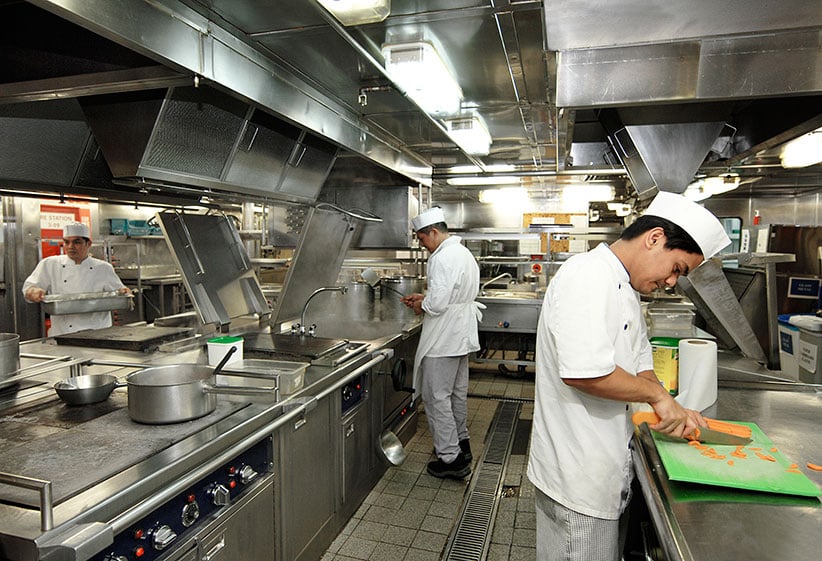If you have a sense of adventure and enjoy food, you can be a ship’s cook
A galley can be a tough workplace, but there’s money to be made
Cooks preparing meat in commercial kitchen on cruise ship. (Thierry Dosogne/Getty Images)
Share

A cook can make good money by heading out on the high seas. Ocean-based businesses need someone to cook, and starting salaries in the off-shore industry—oil and gas exploration, drilling platforms, cargo and fishing vessels—are in the $80,000 range. But it’s not easy money.
Besides 12-hour shifts in challenging conditions, cooks are away from home for months at a time. “You have to be able to do some solid long-term planning,” says Christena Goyetche, academic chair of Nova Scotia Community College, where they offer a new ship’s cook concentration (certified by Transport Canada) at the Nautical Institute as part of the two-year Culinary Arts program. It includes five weeks of in-class nautical training and marine first aid, plus education on the job’s unique challenges: stringent international laws for disposal of food and waste; safe long-term storage of food and beverages; and cooking on electric stoves because safety regulations prohibit gas on board. (College of the North Atlantic offers a similar course.)
READ: Nova Scotia Community College | Halifax, N.S. | Founded 1996
Then there’s the organizational mind it takes to plan months of meals with enough variety that the crew doesn’t mutiny. Plus, the kitchen is in constant motion: seasickness is a concern, as are pots and pans that have to be strapped down so they don’t fly around.
NSCC students find out if life at sea is for them during a 30-day on-board job placement. Past placements have included Marine Atlantic (which operates ferries between Newfoundland and Nova Scotia), Secunda Canada (support vessels for oil and gas exploration off the East Coast) and Atlantic Towing (tugs, barges, cargo ships and other marine support vessels). Work can be found on most ships at sea, like ferries, cruise ships and Navy ships.
“It is not for everybody,” says Goyetche. “That’s why that 30 days at sea is there, to see if this is something they can adapt to and handle.”
[widgets_on_pages id=”Education”]